Dubai’s real estate market has long been a beacon for investors worldwide, offering a unique blend of luxury, innovation, and high returns. As we navigate the dynamic landscape of 2024, investors face a crucial decision: should they opt for long-term stability or short-term gains? This comprehensive guide unveils the five shocking truths about long-term versus short-term real estate investments in Dubai, empowering you to make informed decisions that align with your financial
goals and risk tolerance.
1. Return on Investment: The Numbers Don't Lie
Investing in Dubai’s real estate market offers promising returns, with an average annual appreciation rate of 5-7%, making it a compelling choice for both short-term and long-term investors. Apartments in prime locations yield rental returns between 6-8%, while villas typically offer 4-6%. This consistent performance, coupled with the potential for compounded growth over time, positions Dubai as a lucrative market for real estate investment. Whether you’re looking for steady rental income or capital appreciation, the market dynamics in Dubai provide a balanced and profitable investment opportunity.
Long-Term:
- Average annual appreciation: 5-7%
- Rental yields: 6-8% for apartments, 4-6% for villas
- Potential for compounded growth over time
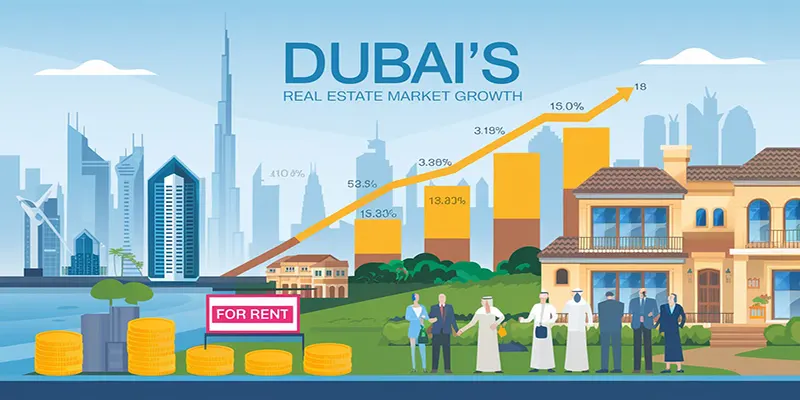
When considering vacation rentals, the potential for high returns is enticing, with yields reaching up to 15% in prime locations. However, these lucrative returns come with higher operational costs and management fees, such as cleaning, maintenance, and booking management. Additionally, vacation rentals are more susceptible to market fluctuations, particularly during off-peak seasons or economic downturns. Investors need to weigh the potential income against these risks and ensure they have a robust plan for managing both the property and market volatility to maximize profitability.
Short-Term:
- Vacation rental yields: Up to 15% in prime locations
- Higher operational costs and management fees
- More susceptible to market fluctuations
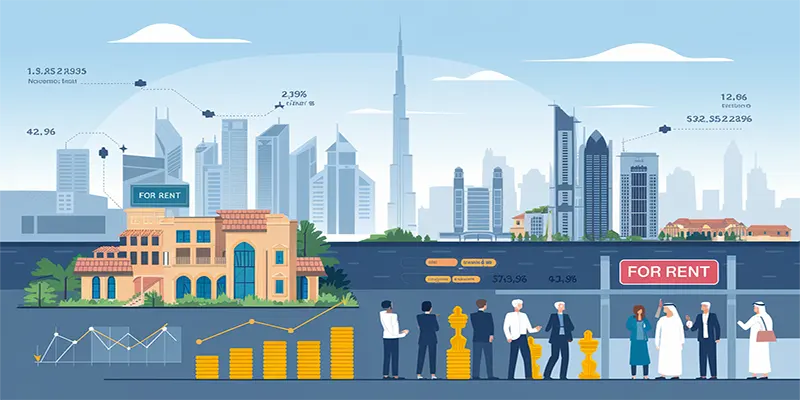
2. Market Cycles: Riding the Waves of Dubai's Real Estate
Investing in properties with the ability to weather market downturns offers long-term stability, allowing you to benefit from overall market appreciation. Unlike short-term investments, these properties are less affected by seasonal fluctuations, providing a steady income stream even during economic shifts. By focusing on well-established locations and maintaining a diversified portfolio, investors can safeguard their assets and capitalize on the gradual increase in property values over time. This approach ensures resilience in volatile markets while securing consistent growth and returns.
Long-Term:
- Ability to weather market downturns
- Benefit from overall market appreciation
- Less affected by seasonal fluctuations
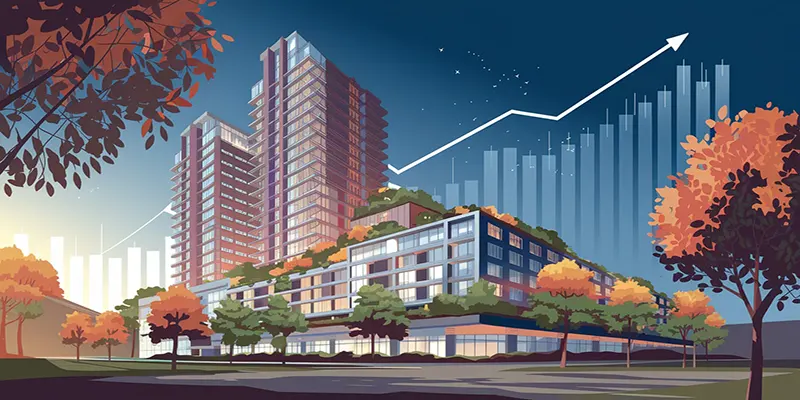
Maximizing returns from vacation rental investments involves capitalizing on peak seasons such as the Dubai Shopping Festival and major Expo events, when demand is high and rental yields can significantly increase. Flexibility to adapt to changing market conditions is crucial, allowing property owners to adjust strategies based on shifting trends and visitor patterns. However, it’s important to recognize that these investments carry higher risks during off-peak periods or economic downturns, when demand wanes and revenue may decrease. Effective management and strategic planning are essential to navigate these fluctuations and sustain profitability throughout the year.
Short-Term:
- Capitalize on peak seasons (e.g., Dubai Shopping Festival, Expo events)
- Flexibility to adapt to changing market conditions
- Higher risk during off-peak periods or economic downturns
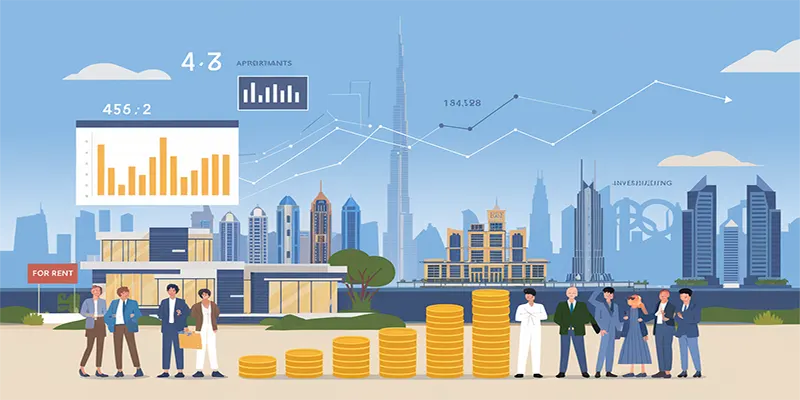
3. Property Management: The Hidden Costs and Efforts
Investing in long-term rental properties offers several advantages, including lower turnover and management costs compared to short-term rentals. With stable, long-term tenants, property owners can enjoy a steady income stream while minimizing the expenses associated with frequent tenant changes and ongoing property management. This stability reduces the need for hands-on management, as long-term leases often involve fewer issues and less frequent tenant turnover. As a result, investors benefit from a more predictable cash flow and reduced operational complexity, making long-term rentals an efficient and cost-effective option for maintaining steady returns.
Long-Term:
- Lower turnover and management costs
- Steady income with long-term tenants
- Less hands-on management required
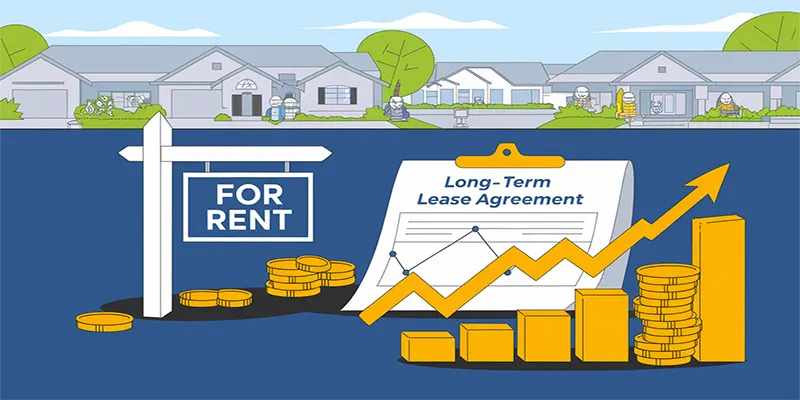
Investing in short-term rental properties often entails higher operational costs compared to long-term rentals. These expenses include frequent cleaning, regular maintenance, and utilities, all of which can add up significantly. The intensive management required to handle bookings, guest interactions, and property upkeep may necessitate hiring property management services, further increasing costs. Additionally, the constant turnover of guests can lead to higher wear and tear on the property, requiring more frequent repairs and replacements. While short-term rentals can offer substantial returns, investors must carefully consider these factors to ensure that the potential income outweighs the increased operational demands and associated costs.
Short-Term:
- Higher operational costs (cleaning, maintenance, utilities)
- More intensive management or need for property management services
- Potential for higher wear and tear on the property
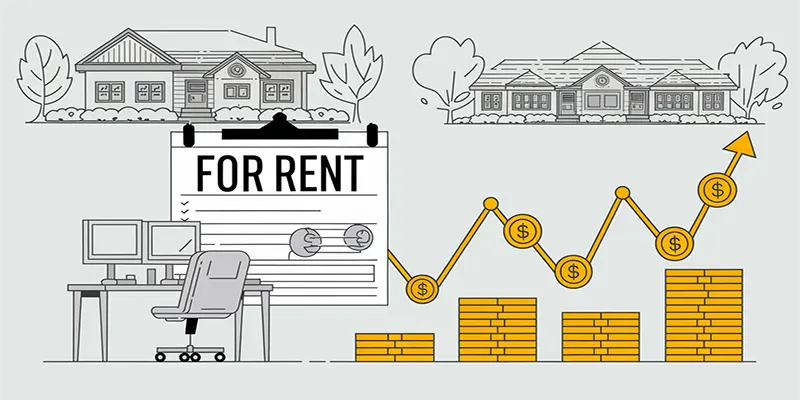
4. Legal and Regulatory Landscape: Navigating Dubai's Evolving Rules
Investing in long-term rental properties benefits from a more straightforward legal framework compared to short-term rentals. This clarity is advantageous, as it ensures established tenant rights and responsibilities are well-defined, reducing potential legal disputes and enhancing property management efficiency. Additionally, the tax implications for long-term rentals are generally clearer and more predictable, allowing investors to better plan their financial strategies and comply with regulations. This well-structured environment simplifies the investment process, offering stability and transparency in managing both tenant relationships and financial obligations.
Long-Term:
- More straightforward legal framework
- Established tenant rights and responsibilities
- Clearer tax implications
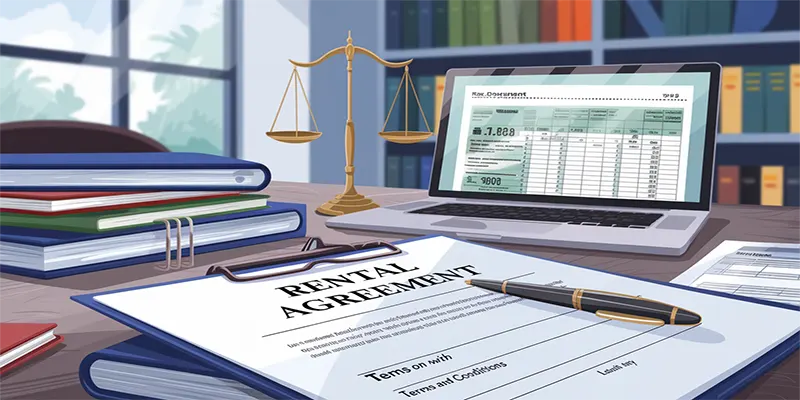
Navigating the evolving regulations for vacation rentals in Dubai is crucial for property investors. The need for specific licenses and permits adds a layer of complexity, requiring careful attention to legal requirements to ensure compliance. With the landscape continuously changing, staying informed about potential regulatory updates is essential, as these can significantly impact rental operations and profitability. Investors must proactively monitor these developments to adapt their strategies accordingly, safeguarding their investments against unexpected shifts in the legal framework.
Short-Term:
- Evolving regulations for vacation rentals
- Need for specific licenses and permits
- Potential for regulatory changes affecting operations
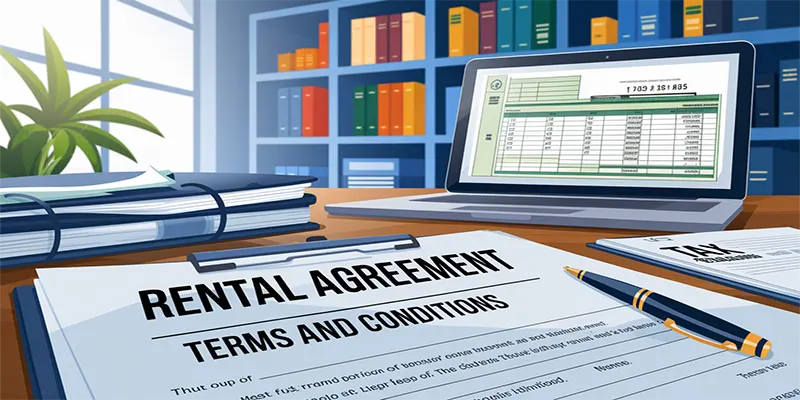
5. Market Opportunities: Capitalizing on Dubai's Growth Sectors
Investing in Dubai’s real estate market offers significant advantages, particularly with the ongoing infrastructure developments outlined in the Dubai 2040 Urban Master Plan. This strategic initiative aims to enhance the city’s connectivity, green spaces, and urban facilities, driving appreciation in emerging neighborhoods. As these areas develop, property values are likely to rise, offering investors the potential for long-term capital gains. By targeting regions poised for growth, savvy investors can capitalize on the increasing demand and enjoy substantial returns over time, making it a promising opportunity for both short-term and long-term financial success.
Long-Term:
- Benefit from infrastructure developments (e.g., Dubai 2040 Urban Master Plan)
- Appreciation in emerging neighborhoods
- Potential for long-term capital gains
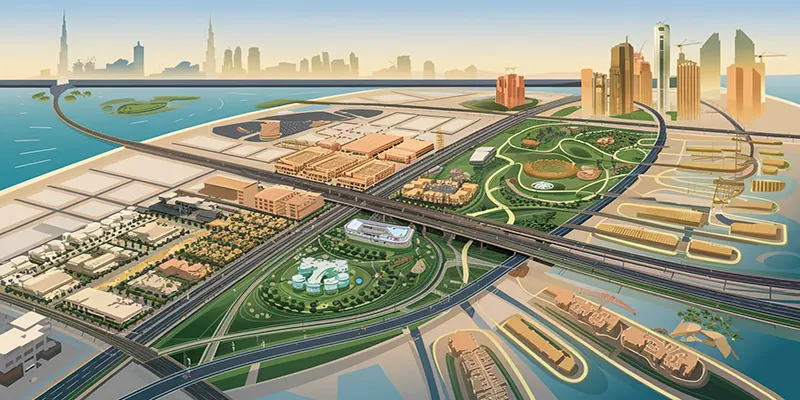
Major events like the Dubai Expo and international conferences offer unique opportunities to capitalize on heightened demand in the real estate market. These events attract global audiences, creating flexibility to target different market segments, from short-term visitors to long-term investors. By strategically investing in properties near event venues or popular districts, investors can benefit from increased rental demand and higher returns. Additionally, these periods provide a valuable chance to test multiple locations and property types, allowing for diversified investments that can adapt to various market conditions and future opportunities.
Short-Term:
- Capitalize on major events (e.g., Dubai Expo, international conferences)
- Flexibility to target different market segments
- Opportunity to test multiple locations and property types
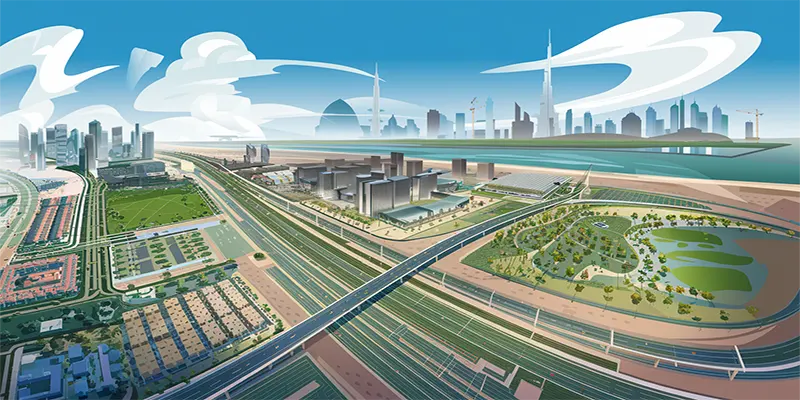
Key Statistics:
Dubai’s real estate market witnessed significant growth in the first half of 2023, with transactions reaching AED 160 billion. This surge reflects the increasing investor confidence and the city’s appeal as a global property hotspot. The short-term rental market saw a remarkable 30% growth, driven by the influx of tourists and business travelers. Meanwhile, long-term residential property prices experienced a steady increase of 5% year-on-year, highlighting the strong demand for permanent homes. This upward trend in both short-term and long-term sectors underscores Dubai’s dynamic real estate landscape, making it a lucrative investment destination.
- Dubai's real estate transactions reached AED 160 billion in H1 2023
- Short-term rental market grew by 30% in 2023
- Long-term residential property prices increased by 5% year-on-year in 2023
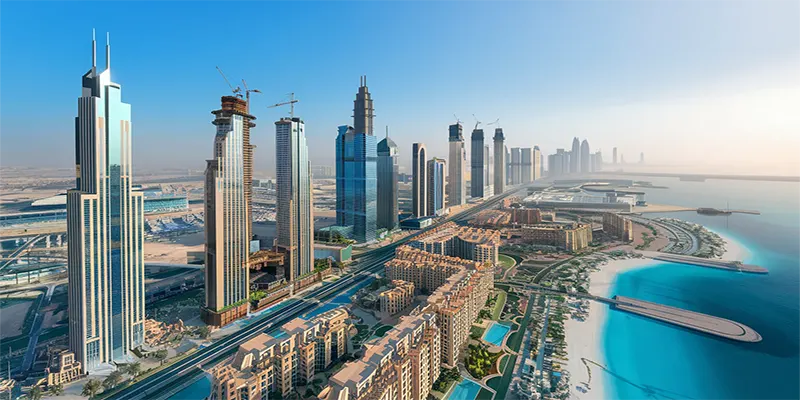
Making the Right Choice: Factors to Consider
When investing in Dubai’s real estate market, it’s crucial to align your strategy with your investment goals. Are you seeking capital appreciation, where the property value grows over time, or do you prioritize regular income from rental yields? Your risk tolerance will determine if you lean towards market stability with safer, lower returns or if you’re open to higher risks for potentially greater rewards. Consider your time commitment—do you want passive income from long-term leases, or are you ready for the active management that short-term rentals require? A solid understanding of Dubai’s diverse neighborhoods is vital, as each offers different potential for growth and returns. Lastly, assess your financial capacity, including the initial investment, ongoing operational costs, and cash flow management, to ensure a sustainable investment.
- Investment Goals: Capital appreciation vs. regular income
- Risk Tolerance: Market stability vs. potential for higher returns
- Time Commitment: Passive income vs. active management
- Market Knowledge: Understanding Dubai's diverse neighborhoods and their potential
- Financial Capacity: Initial investment, operational costs, and cash flow management

Expert Insight:
“The choice between long-term and short-term real estate investment in Dubai depends on your investment goals and risk appetite. Long-term investments offer stability and potential for capital appreciation, while short-term rentals can provide higher yields but require more active
management,” says Mohammed Al Hashmi, Senior Real Estate Analyst at Dubai Property Insights.
As Dubai’s real estate market continues to evolve, both long-term and short-term investment strategies offer unique opportunities and challenges. Long-term investments provide stability, steady appreciation, and lower management overhead, aligning well with Dubai’s vision for sustainable growth. On the other hand, short-term rentals offer the potential for higher yields and flexibility, capitalizing on Dubai’s booming tourism sector and dynamic event calendar.
Success comes from matching your investment approach to your financial objectives and risk appetite, and market understanding. Whether you choose the steady path of long-term investments or the dynamic world of short-term rentals, Dubai’s real estate market offers a wealth of opportunities for savvy investors.
As you navigate this decision, consider consulting with local real estate experts, staying informed
about market trends, and perhaps even diversifying your portfolio to benefit from both strategies.
Remember, the most successful investors in Dubai's real estate market are those who remain adaptable, informed, and strategic in their approach.
Dubai’s real estate landscape is not just about choosing between long-term and short-term investments; it’s about understanding the nuances of each approach and how they fit into your overall investment strategy. By leveraging the insights provided in this guide, you’re now better equipped to make informed decisions that can unlock the full potential of Dubai’s vibrant property
market.
Most Frequently Asked Question?
Long-term investments typically offer more stable returns, benefiting from Dubai’s overall economic growth and infrastructure development. However, short-term rentals can provide higher yields in popular tourist areas, albeit with increased volatility.
Long-term investors can ride out market fluctuations, while short-term investors need to be more agile, adapting their strategies to capitalize on seasonal trends and market shifts.o.
Short-term rentals demand more active management, from frequent turnovers to marketing and guest communications. Long-term investments generally require less day-to-day involvement.
Yes, short-term rental operators must obtain a holiday home license from the Department of
Tourism and Commerce Marketing (DTCM) and comply with specific regulations regarding property
standards and guest safety.
Long-term investments often align well with Dubai’s strategic development plans, benefiting from infrastructure improvements and economic growth. However, short-term strategies can capitalize
on the city’s growing tourism and business travel sectors.









